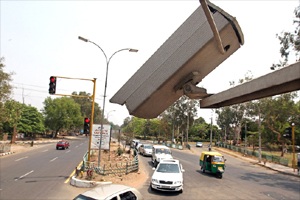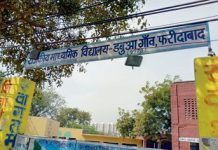Expressing concern over high number of road accidents, an expert committee has suggested installing CCTV cameras at regular intervals on highways to check rash driving besides levying of heavy fines. The recommendations come in the background of India accounting for 1.5 lakh deaths in 5 lakh road accidents per annum, the cost of which comes to around 3 per cent of the GDP.
“Rash driving was one of the chief reasons contributing to accidents. The Committee felt that introduction of CCTV cameras at frequent intervals on the highways and monitoring of speedy driving and levying deterrent fines could be considered to reduce accidents due to over-speeding,” an expert committee, headed by former Maharashtra PWD Secretary S R Tambe has said in its report. The Committee to recommend ‘best practices in road construction’ said the deployment of drones with cameras to carry out surveillance of the highways could also be considered.
“The Committee also recommends that the highway authorities should provide funds to the police authorities to procure equipment such as speed guns etc. to enforce traffic discipline,” the report said. The income received out of imposing fines can be retained by Highways Authority, it said. Its other recommendations include measures such as providing anti crash barriers along the approaches to a tunnel to lead traffic into the carriageway inside the tunnel should be scrupulously ensured to avoid vehicles crashing against ends of the tunnels.
Road Transport and Highways Minister Nitin Gadkari has also cautioned that officials concerned could be booked in case of accidents happening due to flawed road designing. Gadkari has said he was “immensely pained” to see that as high as 1.5 lakh people are dying in road accidents here annually and faulty road designing is one of the major causes of accidents on several stretches.








